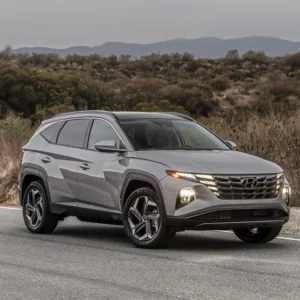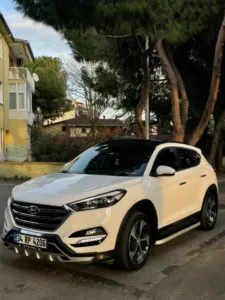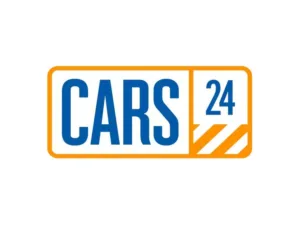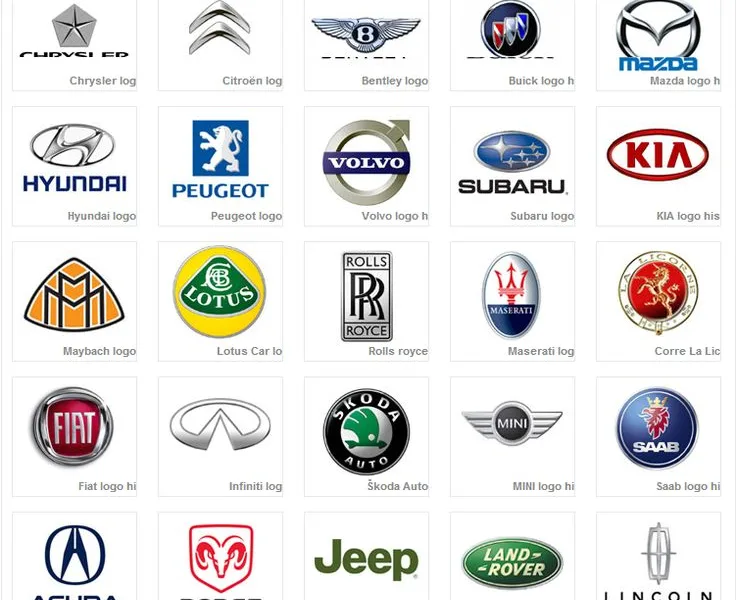The Evolution of the Car Business: From the Past to the Future
- The Evolution of the Car Business: From the Past to the Future
- The Early Days of the Car Industry:
- The Rise of Globalization and Diversification:
- The Digital Age and Technological Advancements:
- The Future of the Car Business
- When we talk about Car Business, here is a never-ending Battle: New Car Business vs. Old Car Business
- Challenges Faced by the Car Industry:
- Top 10 Largest Automobile Manufacturing Companies in the World:
- Some Online used car marketplace Companies:
- CarWale:
- Droom
- Conclusion
The Evolution of the Car Business: From the Past to the Future
The car industry has been an essential part of our daily lives for over a century now. From the earliest horseless carriages to the advanced electric and self-driving vehicles of today, cars have come a long way in terms of design, technology, and impact on society. The car business has not only shaped our transportation needs but also played a significant role in shaping economies and cultures worldwide.
In this blog, we will take a closer look at the evolution of the car business from its beginnings to the current state and the potential future developments.
The Early Days of the Car Industry:
The first-ever self-propelled vehicle was invented by Karl Benz in 1885, marking the birth of the automobile industry. However, it wasn’t until the early 20th century that cars became more accessible to the general public. With Henry Ford’s introduction of the assembly line production system, cars became more affordable, and the demand for them increased rapidly.
During this time, the car industry was dominated by a few major players such as Ford, General Motors, and Chrysler. These companies were known for their mass production techniques and their iconic models like Ford Model T and Cadillac V-16. The industry was highly competitive, and companies were constantly trying to outdo each other in terms of technology and design.

image credit pinterest
The Rise of Globalization and Diversification:
As the world became more interconnected in the mid-20th century, so did the car industry. Companies like Toyota, Honda, and Volkswagen emerged as major players in the market, challenging the dominance of American carmakers. These companies brought in innovative production methods and introduced new technologies such as fuel-efficient engines and safety features.
The 1970s saw a significant shift in consumer preferences towards smaller and more economical cars due to rising fuel prices and environmental concerns. This led to a boom in foreign imports as well as the emergence of smaller, domestic car manufacturers. The industry became more diverse, with a wide range of options for consumers to choose from.
The Digital Age and Technological Advancements:
The turn of the 21st century brought about a new era in the car business, with the introduction of digital technology. Cars became more than just a mode of transportation; they transformed into intelligent machines with advanced features like GPS navigation, wireless connectivity, and self-parking capabilities.
Electric vehicles also gained traction during this time, with Tesla leading the way in producing high-end electric cars. This shift towards eco-friendly vehicles was not only driven by consumer demand but also by government regulations to reduce carbon emissions.

image credit pinterest
The Future of the Car Business
As we move towards the future, the car business is set to undergo even more significant changes. The rise of autonomous vehicles is set to revolutionize the industry, with companies like Google, Uber, and Tesla investing heavily in their development. These self-driving cars have the potential to reduce accidents, ease traffic congestion and make transportation more efficient.
Moreover, with the growing concern for climate change and depleting fossil fuels, there is a shift towards sustainable and renewable energy sources. This has led to an increase in the development of electric and hybrid vehicles by major car manufacturers. It is predicted that by 2040, almost 60% of new cars sold worldwide will be electric.
Another trend to watch out for in the future of the car business is ride-sharing services. The success of companies like Uber and Lyft has sparked interest in other industries to adopt a similar model. This could potentially lead to a decrease in car ownership and a rise in subscription-based services for accessing vehicles.
When we talk about Car Business, here is a never-ending Battle: New Car Business vs. Old Car Business
The automotive industry has been a significant player in the global economy for several decades now. With the increasing demand for cars, the automotive industry has witnessed a dramatic change in its business model. The emergence of new car business and old car business has further intensified the competition in this industry. However, there are significant differences between these two types of businesses that make them distinct from each other. In this blog, we will explore the difference between new car business and old car business and how they coexist in the ever-evolving world of automobiles.
Let’s start by understanding what new car business and old car business mean.
New car business refers to the sale of brand new cars directly from the manufacturer or through authorized dealerships. These cars are usually the latest models with the most advanced technology, safety features, and warranties.
On the other hand, old car business deals with the buying and selling of used cars. These cars are usually pre-owned and have already been driven for a certain period. They may or may not come with warranties or advanced features, depending on their condition and age.
Now that we have a basic understanding of these two types of businesses let’s dive into their differences.
1. Cost:
One of the primary differences between new car business and old car business is their cost. New cars are typically much more expensive than used cars due to their advanced features, warranties, and higher demand. The cost of a new car also includes the dealer’s profit margin and additional fees such as registration and taxes.
On the other hand, used cars are significantly cheaper as they have already been driven for some time, and their value depreciates with each passing year. They also do not come with additional fees, making them a more affordable option for buyers.
2. Selection:
Another significant difference between these two types of businesses is the selection of cars available. In a new car business, buyers have access to the latest models with the most advanced technology and features. They can also choose from a variety of colors, trims, and options to customize their car according to their preferences.
In contrast, old car businesses may not have a wide selection of cars as they are dependent on what is available in the market. Buyers also have limited options for customization, and they have to compromise on certain features or colors.
3. Reliability:
New cars are known for their reliability as they come with warranties and have not been driven before. They are typically more technologically advanced and undergo rigorous testing before being launched in the market. This makes them a more dependable option for buyers who want a car that will last them for a long time.
On the other hand, used cars may not be as reliable as they have already been driven and may have some wear and tear. Buyers have to be cautious while purchasing a used car as they may face unexpected maintenance costs in the future.
4. Depreciation:
Depreciation is a significant factor that sets new car business apart from old car business. As soon as a new car is driven off the dealership, its value decreases significantly. In the first year alone, a new car can lose up to 20% of its value. This means that if a buyer decides to sell their new car after a year, they will face a substantial loss.
Old cars, on the other hand, have already undergone their initial depreciation and do not lose their value as quickly as new cars. This makes them a more cost-effective option for buyers who want to save money in the long run.
5. Financing Options:
New car businesses usually offer financing options to make it easier for buyers to purchase their vehicles. These options include loans with low-interest rates, lease agreements, and cashback offers. This makes it more convenient for buyers who cannot afford to pay the full price of a new car upfront.
In contrast, old car business may not offer financing options, and buyers have to pay for the car in full. This can be a significant obstacle for buyers who do not have enough savings to purchase a car outright.
6. Market Demand:
Market demand plays a crucial role in both new car business and old car business. In the automotive industry, new models are continuously being introduced, making older models less desirable. This means that new cars have a higher demand than used cars, and dealerships can easily sell them at a higher price.
Old car businesses, on the other hand, operate on a smaller scale and are dependent on the availability of used cars in the market. If there is a sudden increase in demand for a particular model, it may be challenging for them to find enough inventory to meet the demand.
Both new car business and old car business operate in the same industry, they cater to different segments of buyers. New car businesses target those who want the latest features and are willing to pay a premium for them. On the other hand, old car businesses cater to budget-conscious buyers who are looking for a reliable and affordable option. Both types of businesses coexist and are essential players in the automotive industry, offering buyers different options based on their preferences and needs.
Challenges Faced by the Car Industry:
Despite all the advancements and potential developments, the car business is not without its challenges. One significant challenge faced by the industry is adapting to rapidly changing consumer preferences and demands. With the rise of technology, consumers are looking for more innovative and convenient features in their vehicles.
Another challenge is the increasing competition in the market. With the rise of new players and the constant pressure to stay ahead in terms of technology and design, car companies are facing fierce competition on a global scale.
Furthermore, government regulations and policies aimed at reducing emissions and promoting sustainable transportation are also posing challenges for the industry. This requires significant investments in research and development to meet these new standards.
Top 10 Largest Automobile Manufacturing Companies in the World:
1) Tata Motors:
Tata Motors is the Asia’s largest and 17th largest automobile manufacturing company in the world. This company is known for its production of cars, trucks, vans, coaches and so on. Tata Motors record the highest sales and is widely popular across the country in 2017.
This company is passionate about anticipating and providing the best commercial and passenger vehicles globally as well as the best customer experiences.Tata Motors can be found on and off-road in over 175 countries around the globe. Cars, buses and trucks of Tata Motors roll out at 20 locations across the world, seven in India and the rest in the UK, South Korea, Thailand, South Africa and Indonesia.
2) Mahindra & Mahindra Ltd:
Mahindra & Mahindra Ltd is a US $19 billion global federation of companies. This company is the world’s largest tractor manufacturing company and also India’s second largest vehicle manufacturing company. Mahindra & Mahindra is India’s top SUV manufacturing company that produce two wheelers, bus, pickup, tempo, trucks, and commercial vehicles.
This company commits to invest in technology and grow global presence. Mahindra & Mahindra aims to multiply output both in quantity and quality with a major focus on manufacturing excellence. This company has created several industry-leading and category-defining brands.
3) Maruti Suzuki:
Maruti Suzuki had brought a big revolution in the automobile industry. This is one of the old companies that expertise in the field of production of cars. This company has manufactured cars such as Alto, Omni, Estilo and so on. The total annual production capacity of this company is about 14, 50,000 units.
Maruti Suzuki works with a mission to provide a car for every individual, family, need, budget and Way of Life. For this, it offers 15 brands and over 150 variants ranging from Alto 800 to the Life Utility Vehicle Maruti Suzuki Ertiga.
4) Hero MotoCorp Ltd:
Hero MotoCorp Ltd is one of the best companies in India. Hero MotoCorp Ltd. (Formerly Hero Honda Motors Ltd.) is the world’s largest manufacturer of two – wheelers, based in India.
This company achieved the coveted position of being the largest two-wheeler manufacturing company in India in 2001 and the ‘World No.1’ two-wheeler company in terms of unit volume sales in a calendar year. Hero MotoCorp two wheelers are manufactured across 4 globally benchmarked manufacturing facilities.
5) Bajaj Auto Limited:
Bajaj Auto Limited is one of the leading business houses and the company’s flagship company, Bajaj Auto, is ranked as the world’s fourth largest three and two wheeler manufacturer.
The Bajaj brand is well-known across several countries in Latin America, Africa, Middle East, South and South East Asia. Their flagship company produces Chetak scooters which were the top seller in the Indian market. The company even made the bikes like pulsar and now they are still working on it.
6) Toyota Motor Corporation:
Toyota Motor Corporation is one of the top most automobile manufacturing companies in the world. This company designs, manufacturers and markets various automobile product ranges from SUVs, minivans, luxury & sport utility vehicles, trucks and buses among others.
Toyota Motor Corporation has other vehicle manufacturing subsidiaries which include Daihatsu Motor for the production of mini-vehicles and Hino Motors for the production of buses and trucks. Toyota car engines are fixed with either combustion or lately the hybrid engines such as the one in the Prius.
7) Chevrolet:
Chevrolet is an American division of the General Motors. The company has an array of trucks, automobiles and commercial vehicles as the products it offers with its services including oil changing, vehicle insurance, vehicle financing, vehicle sales and vehicle repairs. Chevrolet has the reputation of being a car of all the purses and all the purposes. Its wide range of vehicles includes subcompact automobiles and medium duty commercial trucks among others.
8) MITSUBISHI MOTORS CORPORATION:
Mitsubishi Motors Corporation develops design, and manufacture, sale and purchase automobiles and component parts, replacement parts. This company manufactures component parts, replacement parts and accessories of said used automobiles.
Mitsubishi helps to bring higher productivity and quality to the factory floor. In addition, extensive service networks around the globe provide direct communication and comprehensive support to customers.
9) Honda Motor Co Ltd. Company:
Honda Motor Co Ltd. Company is a world leading automaker and the largest motorcycle producer in the world. Its motorcycle lines feature everything from super bikes to scooters, with the company also being dedicated to the production of personal watercrafts and ATVs.
The models of this company include seven luxury vehicle models as well as SUVs and others. Within its lines are also Honda Power products and machinery such as snow blowers, tillers, lawn mowers, outboard motors and portable generators. Engine quality, durability and economic fuel consumption are the main reasons why customers prefer Honda machines.
10) Ford Motor Company:
Ford Motor Company is one of the leading automobile manufacturers in the world that ranks high among the top automobile companies. Some of its most staple brands include Lincoln, Taurus, Focus, Mustang, and Fiesta etc.
Some Online used car marketplace Companies:
CARS24:
CARS24 is an Indian multinational online used car marketplace headquartered in Gurgaon.The company is considered among the four major organised players in the used car segment in India.
Apart from this, CarDekho offers a wide range of used electric vehicles. They are available across multiple body types, like sedans, hatchbacks, and SUVs.
The CARS24 platform facilitates the transaction and has an offline presence. Apart from selling used cars, the company’s services include paperwork such as transferring the car to the name of the new owner which enables end-to-end transactions and offers an online auction platform to businesses looking to sell their pre-owned cars. In 2019, the company started offering verified used cars where the company offered a buyback guarantee on the vehicles verified by inspection.

image credit pinterest
The company operates 202 branches across 73 cities in India as of 2019. Apart from its own branches, the company has a tie-up with more than 10,000 channel partners across 230 cities in India.The company touched 150,000 annual car sales in 2019.
In 2008, CarDekho acquired nine companies in areas like Consumer Digital in India, Auto Retail and Aftersales, B2C E-Commerce, and more. They spent over $11 million on these acquisitions.
CarTrade:
CarTrade is a website where you can directly connect with certified used car dealers and get a personalised quote. You can also view what other individuals in that area paid for similar cars and avail of transparent pricing and guaranteed savings on your purchase. Additionally, you get a 15-day exchange policy and a free CARFAX report for every car.
Over the years, CarTrade has acquired four companies in various sectors, including Consumer Digital in India, B2C E-Commerce, Second Hand Goods, and more. The company has invested over $105 million in these M&A activities.
CarWale:
CarTrade owns CarWale, one of India’s best used car websites, with a presence in more than 200 locations. It offers many car types, ranging from SUVs to sedans. Moreover, if you are looking for EVs and hybrid vehicles, this platform offers them too.
Droom
Droom is a website where you can buy and sell second-hand cars through various options like “Best Offer,” “Auction,” and “Fixed Price.” It has an inventory of 50,000+ vehicles, and you can get your vehicle delivered to your doorstep or pick it up from one of its hubs. Moreover, Droom offers a 10-day return policy for each vehicle and a 6-month warranty.
Conclusion
The car business has come a long way since its early days, evolving into a highly competitive and diverse industry. From the introduction of mass production techniques to the rise of electric and self-driving cars, the industry has constantly adapted to changing consumer needs and technological advancements.
As we move towards the future, the car business is set to undergo even more significant changes with the introduction of autonomous vehicles, renewable energy sources, and ride-sharing services. However, with these changes come challenges that will need to be addressed by car manufacturers to stay relevant in this ever-evolving industry.
One thing is for sure; the car business will continue to shape our daily lives and play a crucial role in shaping economies and societies worldwide. It will be exciting to see what the future holds for this crucial industry.
Also visit: https://taazakhobor.in/
More you can read:
https://deepblogs.net/diabetes-a-global-epidemic-in-the-21st-century/
Practical Education vs Theoretical Education
Hair transplant procedure in 2024. Does hair transplant work??
The Science of Laughter: How Humor Impacts Our Mental and Physical Health
